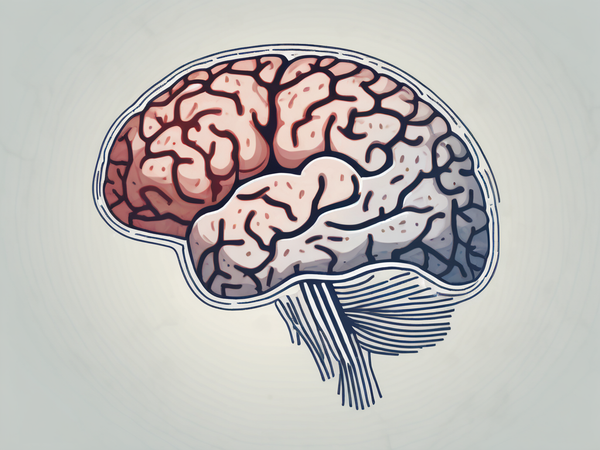Magnesium vs Melatonin
In today's fast-paced world, getting a good night's sleep has become increasingly essential for maintaining optimal health and well-being. Sleep disturbances can have a significant impact on our physical and mental health, leading to fatigue, decreased productivity, and even chronic health conditions. Fortunately, there are various strategies and supplements that can help improve sleep quality, including two popular options: magnesium and melatonin. In this article, we will explore the roles of magnesium and melatonin in promoting healthy sleep, compare their benefits and drawbacks, and discuss other ways to enhance sleep quality.
Understanding Magnesium and Melatonin
Sleep deprivation has become a common problem, with many individuals resorting to sleep aids to find relief. Two such aids that have gained popularity are magnesium and melatonin. While they differ in their mechanisms of action, both play crucial roles in regulating sleep patterns.
The Role of Magnesium in the Body
Magnesium is a mineral that is essential for various bodily functions, including sleep regulation. It plays a vital role in maintaining healthy neurotransmitter activity and promoting relaxation. Additionally, magnesium helps regulate the production of melatonin, a hormone involved in sleep-wake cycles.
Furthermore, magnesium is involved in over 600 enzymatic reactions in the body, highlighting its significance in overall health. It is crucial for energy production, muscle function, and DNA synthesis. Studies have shown that magnesium deficiency is associated with sleep disorders, making it a popular supplement choice for improving sleep quality.
The Function of Melatonin in the Body
Melatonin, often referred to as the "sleep hormone," is naturally produced by the pineal gland of the brain in response to darkness. It helps regulate the body's internal clock, signaling when it is time to sleep and wake up. Melatonin levels typically rise in the evening, promoting drowsiness, and decrease in the morning to promote wakefulness.
In addition to its role in sleep regulation, melatonin is a powerful antioxidant that scavenges free radicals, protecting cells from oxidative damage. Research suggests that melatonin may have anti-inflammatory and immune-modulating effects, further emphasizing its importance beyond sleep. Some studies have even explored its potential in cancer treatment and neuroprotection.
The Sleep Cycle Explained
A healthy sleep cycle is crucial for feeling rested and rejuvenated. Understanding the various stages of the sleep cycle can shed light on the importance of sleep quality and the role of magnesium and melatonin in facilitating this process.
When delving deeper into the intricacies of the sleep cycle, it becomes evident that each stage serves a specific purpose in ensuring overall well-being. NREM sleep, which encompasses the initial stages of the cycle, focuses on physical restoration and growth. This is the phase where the body repairs tissues, strengthens the immune system, and regulates metabolism. On the other hand, REM sleep, characterized by rapid eye movements and vivid dreams, is essential for cognitive functions such as memory consolidation and emotional regulation.
The Importance of a Healthy Sleep Cycle
The sleep cycle consists of four stages: NREM sleep and REM sleep. NREM sleep can be further divided into three stages, with each stage playing a unique role in promoting physical and mental restoration. REM sleep, on the other hand, is associated with vivid dreaming and cognitive processes.
Moreover, the interplay between magnesium and melatonin in regulating the sleep-wake cycle highlights the intricate biochemical processes that govern our circadian rhythm. Magnesium acts as a natural relaxant, promoting muscle relaxation and calming the nervous system, thus paving the way for a smooth transition into sleep. Melatonin, often referred to as the "sleep hormone," is responsible for signaling the body when it's time to rest, helping to synchronize our internal body clock with the natural day-night cycle.
Factors Affecting the Sleep Cycle
Several factors can disrupt the sleep cycle, including stress, caffeine consumption, and exposure to electronic devices before bed. Poor sleep hygiene and disruptions in the sleep cycle can lead to sleep disorders and daytime sleepiness.
In addition to external factors, internal imbalances in neurotransmitters and hormones can also impact the sleep cycle. For instance, an overproduction of cortisol, the stress hormone, can interfere with the body's ability to relax and fall asleep, resulting in fragmented or disturbed rest. Similarly, disruptions in the production of serotonin, a neurotransmitter involved in mood regulation, can lead to sleep disturbances and affect overall sleep quality.
The Influence of Magnesium on Sleep
Magnesium has been linked to improved sleep quality and duration. Its calming properties help relax muscles and promote feelings of relaxation and tranquility, making it easier to fall asleep and stay asleep.
Furthermore, magnesium is known to play a vital role in over 300 enzymatic reactions in the body, including those involved in the regulation of sleep. This essential mineral is involved in the production of adenosine triphosphate (ATP), the main source of energy for cellular processes, which is crucial for maintaining the body's circadian rhythm and promoting restful sleep.
How Magnesium Contributes to Sleep Quality
Magnesium plays a crucial role in regulating neurotransmitters, such as GABA, which promote relaxation and sleep. It also helps regulate the levels of melatonin, optimizing the sleep-wake cycle. Research suggests that magnesium supplementation can improve sleep efficiency, reduce the time it takes to fall asleep, and enhance overall sleep quality.
In addition to its role in neurotransmitter regulation, magnesium also acts as a natural muscle relaxant. By binding to gamma-aminobutyric acid (GABA) receptors in the brain, magnesium helps quiet the nervous system and prepare the body for sleep. This dual mechanism of action makes magnesium a valuable ally in combating insomnia and improving sleep quality.
The Impact of Magnesium Deficiency on Sleep
Unfortunately, magnesium deficiency is prevalent, and it can negatively affect sleep patterns. Inadequate magnesium levels can disrupt neurotransmitter balance, leading to difficulties falling asleep and staying asleep. Therefore, ensuring sufficient magnesium intake is essential for maintaining healthy sleep patterns.
Moreover, factors such as stress, poor dietary choices, and certain medical conditions can deplete magnesium levels in the body, further exacerbating sleep disturbances. Individuals experiencing chronic insomnia or restless sleep may benefit from assessing their magnesium status and incorporating magnesium-rich foods or supplements into their daily routine to support optimal sleep health.
Delving Deeper into Melatonin
Melatonin, a hormone produced by the pineal gland, plays a key role in regulating the sleep-wake cycle. Understanding the production and effects of melatonin can help us appreciate its significance in promoting restful sleep.
Furthermore, melatonin is not only involved in regulating sleep but also has antioxidant properties. It helps protect cells from damage caused by free radicals, which are harmful molecules that can lead to various diseases. This dual role of melatonin showcases its importance in maintaining overall health and well-being.
The Production and Regulation of Melatonin
Melatonin production is controlled by the body's internal clock, also known as the circadian rhythm. As daylight decreases in the evening, the pineal gland releases melatonin, promoting the onset of sleep. Factors such as exposure to light and electronic devices can disrupt melatonin production, leading to sleep difficulties.
In addition to light exposure, certain lifestyle factors can influence melatonin levels. Regular exercise, a balanced diet, and a consistent sleep schedule can help support the natural production of melatonin. By creating a sleep-friendly environment and adopting healthy habits, individuals can optimize their melatonin levels and improve their overall sleep quality.
The Effect of Melatonin on Sleep Patterns
Research has shown that melatonin supplementation can be effective in improving sleep quality and reducing insomnia symptoms. Melatonin can help regulate sleep-wake cycles, shorten the time it takes to fall asleep, and increase the overall duration of sleep. However, it is essential to use melatonin responsibly and under the guidance of a healthcare professional.
Moreover, melatonin's role in the body extends beyond sleep regulation. It has been studied for its potential benefits in managing jet lag, seasonal affective disorder (SAD), and even certain neurodegenerative conditions. The versatility of melatonin in addressing various health concerns underscores its importance as a multifaceted hormone with far-reaching effects.
Safety Profile of Melatonin
When used responsibly and under professional guidance, melatonin is considered safe for short-term use. It is important to note that melatonin concentration varies for different sleep intensities. People with minor sleep problems should consume 5 mg of melatonin, whereas those with major sleep deprivation or insomnia should go for 10 mg of melatonin. It is advised to consult your doctor before starting any sleep medication, including melatonin supplementation, as it may interact with certain medications. Be sure to inform your healthcare provider of any supplements you are taking.
Comparing Magnesium and Melatonin
When it comes to improving sleep, both magnesium and melatonin offer potential benefits, but it is crucial to understand their differences and potential side effects.
The Similarities and Differences
While both magnesium and melatonin can promote better sleep, they differ in their sources, mechanisms of action, and potential uses. Magnesium is an essential mineral that benefits overall health, whereas melatonin is a natural hormone produced in the brain for a more specific role in sleep regulation. Magnesium primarily supports relaxation and neurotransmitter balance, whereas melatonin directly influences the sleep-wake cycle.
The Pros and Cons of Each
Magnesium is generally well-tolerated, but higher doses may cause gastrointestinal side effects. It offers numerous additional health benefits, including improved bone health and heart function. On the other hand, melatonin should be used with caution, as it may cause daytime sleepiness, vivid dreams, or dependency if misused. It is best to consult a healthcare professional before initiating melatonin supplementation.
Other Ways to Improve Sleep Quality
While magnesium and melatonin can be beneficial for enhancing sleep quality, it is essential to adopt a holistic approach to promote optimal sleep. Implementing good sleep hygiene practices, such as
- Maintaining a consistent sleep schedule every night, and getting up at the same time every morning
- Remove electronic devices such as TVs, computers, and smartphones from the bed
- Avoid large meals, caffeine, and alcohol before bedtime
- Get some exercise as physical exhaustion can help you fall asleep more easily at night
- Block out light
There are many simple changes one can adapt to improve sleep quality. Lifestyle changes and supplementation of magnesium or melatonin including supplements can help you snooze better.
Conclusion
Getting adequate, restful sleep is vital for overall health and well-being. Both magnesium and melatonin offer potential benefits in improving sleep quality. Magnesium plays a crucial role in promoting relaxation and regulating neurotransmitters, while melatonin directly influences the sleep-wake cycle. It is important to consider individual needs and consult a healthcare professional before starting any supplementation. Furthermore, adopting good sleep hygiene practices and addressing underlying causes of sleep disturbances can further enhance sleep quality and ensure long-term well-being.



























 DOWNLOAD NOW
DOWNLOAD NOW
